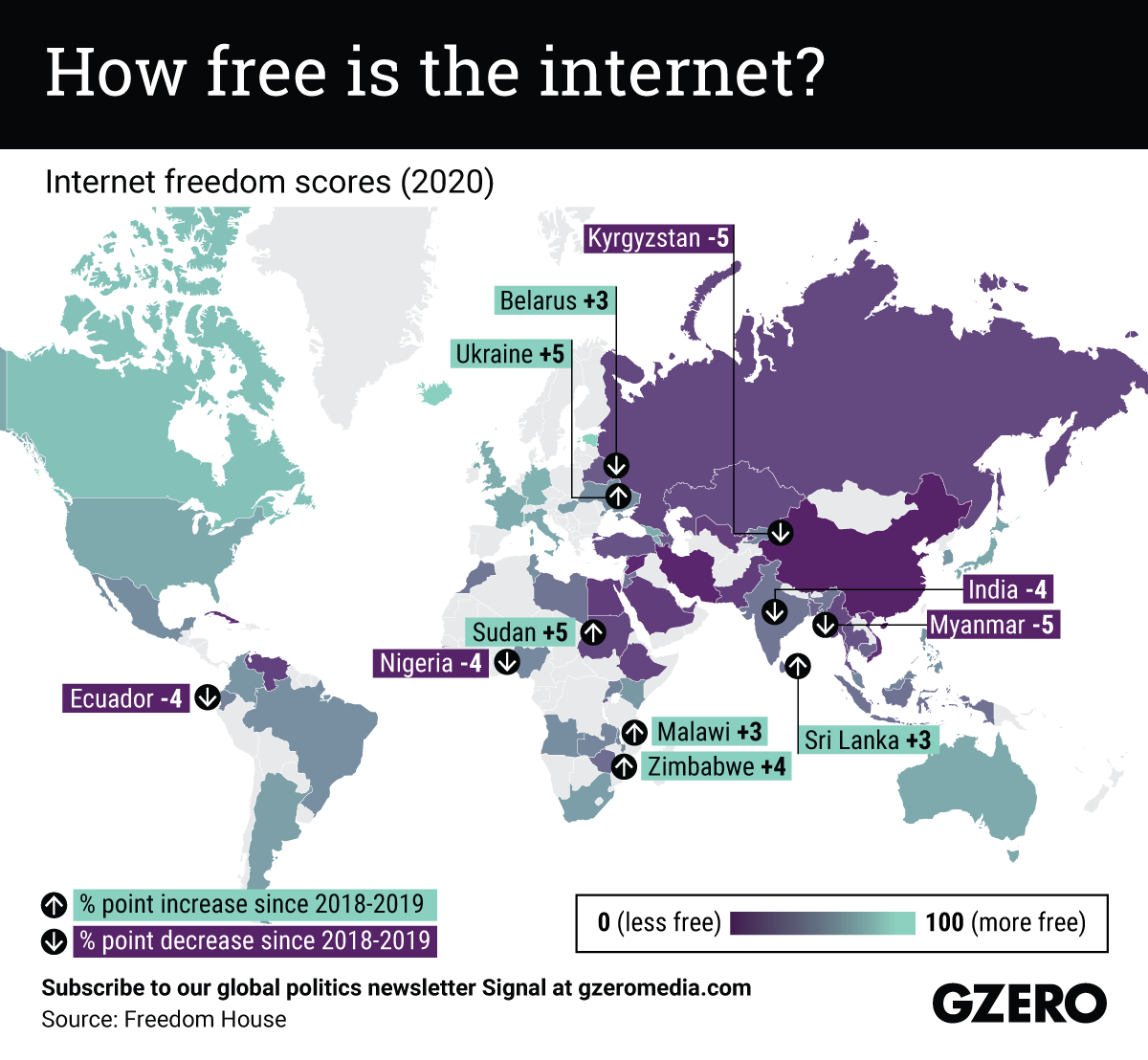As more human activities go online to prevent the spread of COVID-19, the coronavirus has actually made the internet less free than before in many parts of the world. Freedom House warns that political leaders are using the pandemic to suppress access to information under the guise of combating fake news, to justify online surveillance that otherwise would be deemed too intrusive, and to break up the World Wide Web with so-called "cyber sovereignty" regulations that are drawing national borders on the online distribution of information. We take a look at the state of internet freedom in 68 countries, highlighting the top five that have improved and declined the most.
More For You
Ian Bremmer sits down with former US Ambassador to NATO Ivo Daalder to unpack a historic shift in the transatlantic alliance: Europe is preparing to defend itself without its American safety net.
Most Popular
Think you know what's going on around the world? Here's your chance to prove it.
Argentina, Armenia, Belarus, Egypt, Indonesia, Jordan, Pakistan, Paraguay, Vietnam – to name only a few.
A poster featuring Andrew Mountbatten-Windsor, formerly known as Prince Andrew, is installed on a sign leading to the parking area of the Sandringham Estate in Wolferton, as pressure builds on him to give evidence after the U.S. Justice Department released more records tied to the late financier and convicted sex offender Jeffrey Epstein, in Norfolk, Britain, February 5, 2026.
British police arrested former Prince Andrew Mountbatten-Windsor today over allegations that in 2010, when he was a UK trade envoy, he shared confidential government documents with convicted sex offender Jeffrey Epstein.
